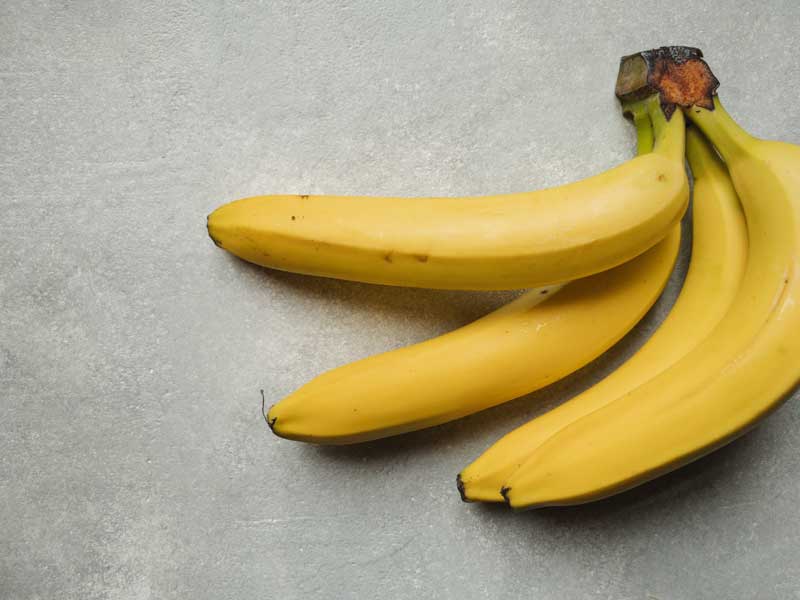Bananas are an amazing source of nutrition. They are low in calories: a medium size banana is about 105 calories! The banana has low to medium glycemic index (depending on how ripe it is) and they may help moderate blood glucose levels after meals and may reduce appetite by slowing stomach emptying.
A banana contains about 422mg of potassium which is important for cellular function and heart health! It also contains magnesium which is another mineral important for heart and muscle health. Eating bananas may decrease blood pressure in healthy people. Banana can help relieve post-exercise muscle cramps.
The banana has 3.1 grams of dietary fiber which is important for regular bowel movements and digestion. Bananas contain resistant starch, which may feed your friendly gut bacteria and may even protect against colon cancer.
A banana also contains Vitamin C, Vitamin B6, copper, and manganese.
Bananas are high in several antioxidants, which may help reduce damage from free radicals and may lower your risk of some diseases.
Is it better to eat a ripe or un-ripe bananas?
Unripe bananas are healthier because they have more fiber and less glucose than ripened bananas. Unripe bananas have high amounts of resistant starch which may improve insulin sensitivity.
Certain population of people should not consume bananas. People who have problems excreting potassium from their body such as patients who have advanced kidney disease or who are receiving hemodialysis can develop potassium overload which can be life-threatening.
People who suffer from diabetes may not benefit from ripe bananas due to their high glucose content.

